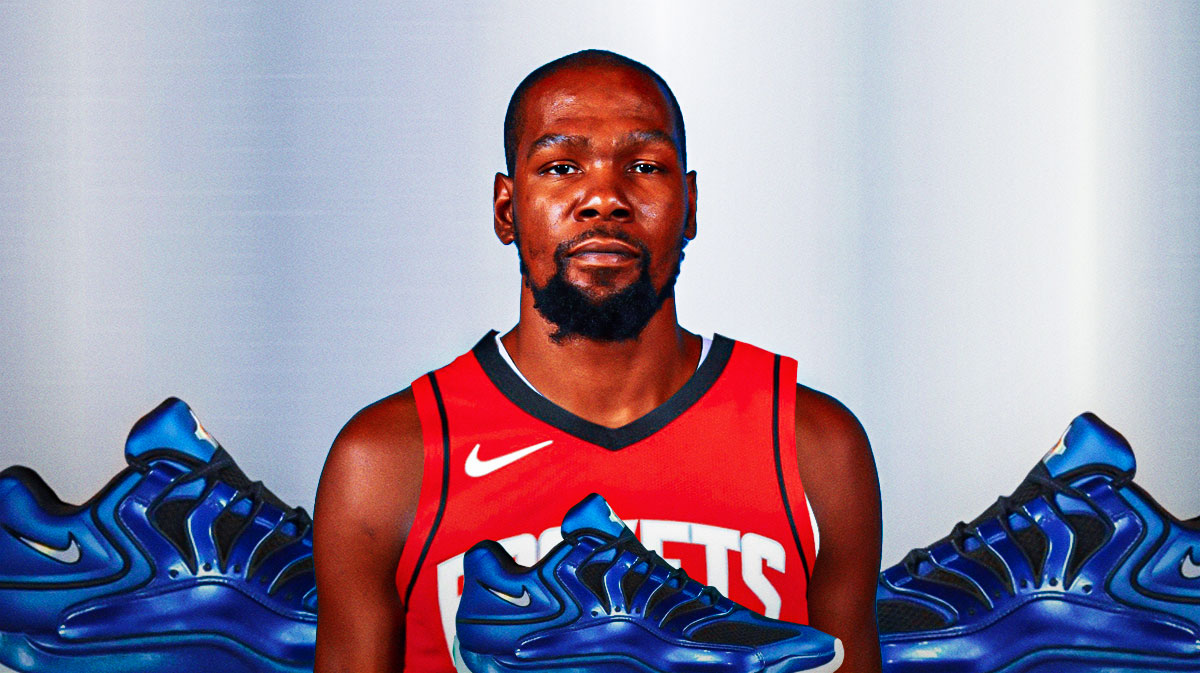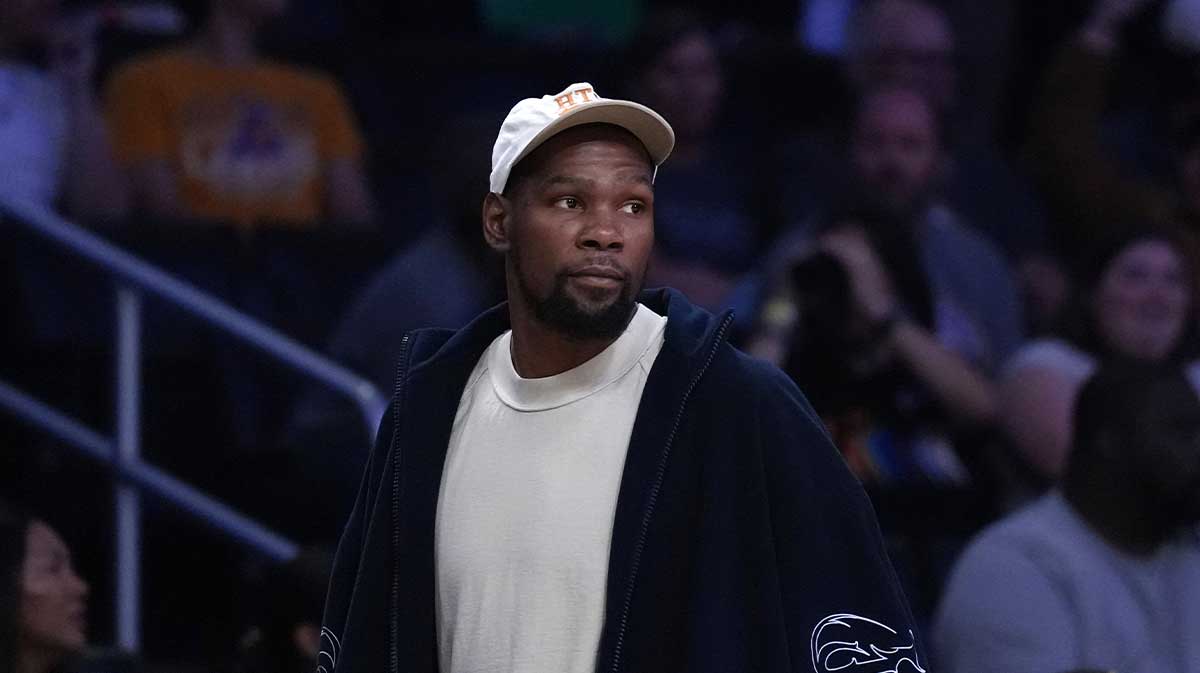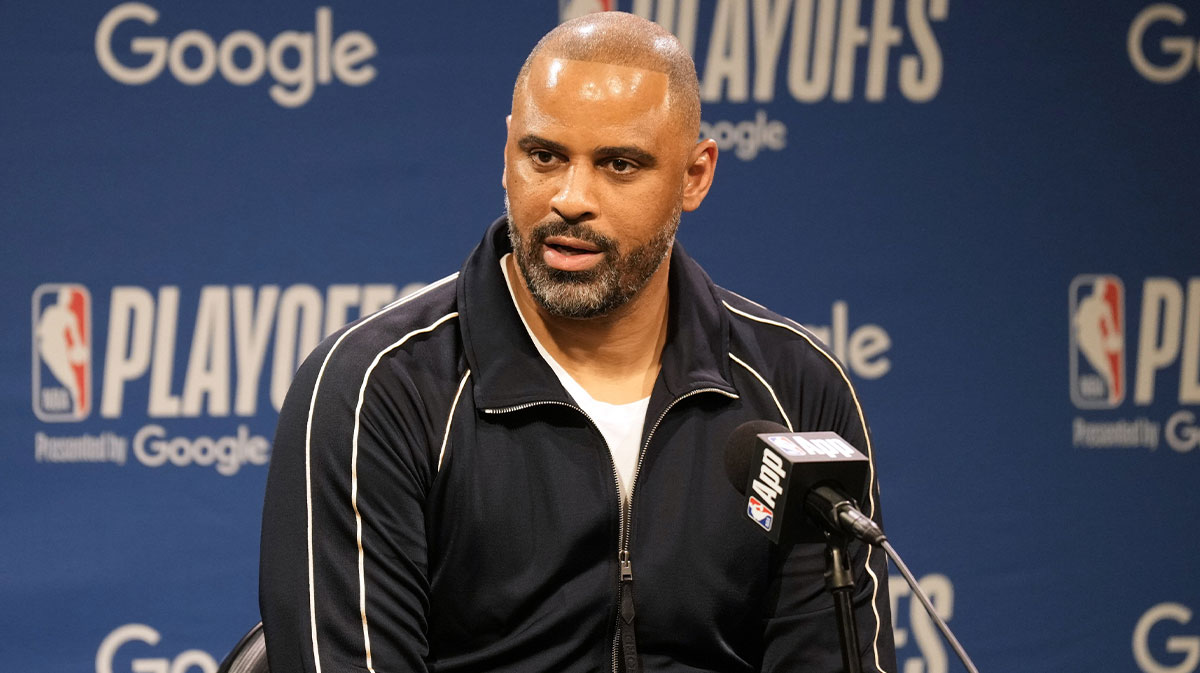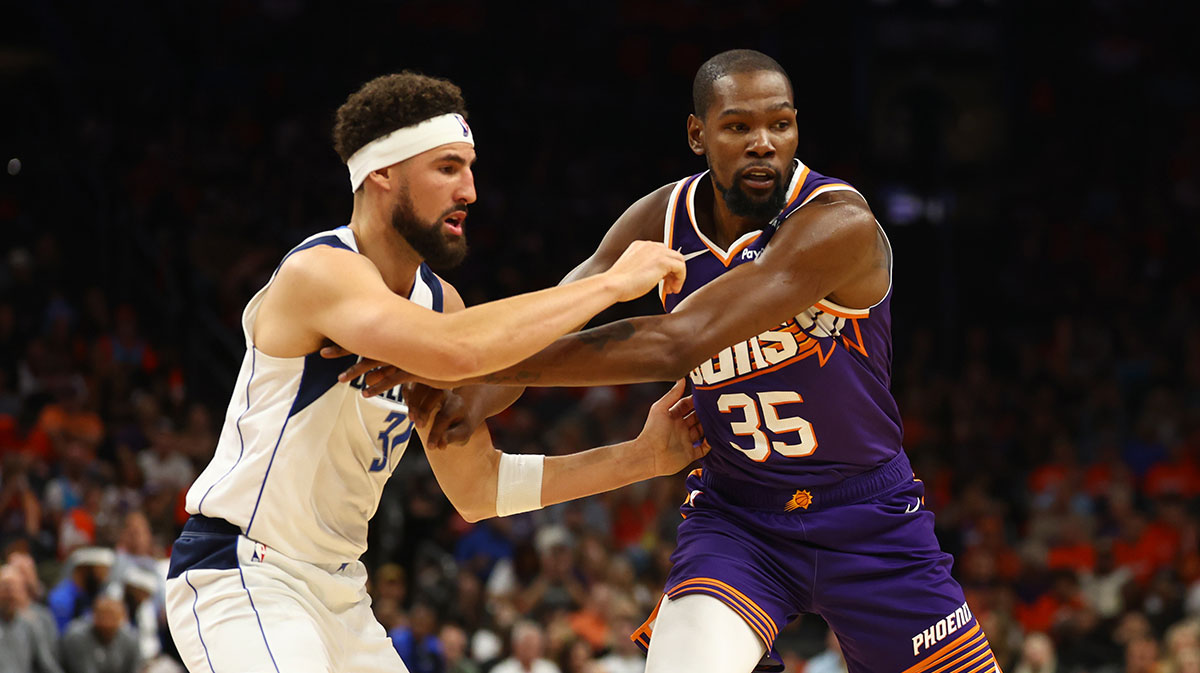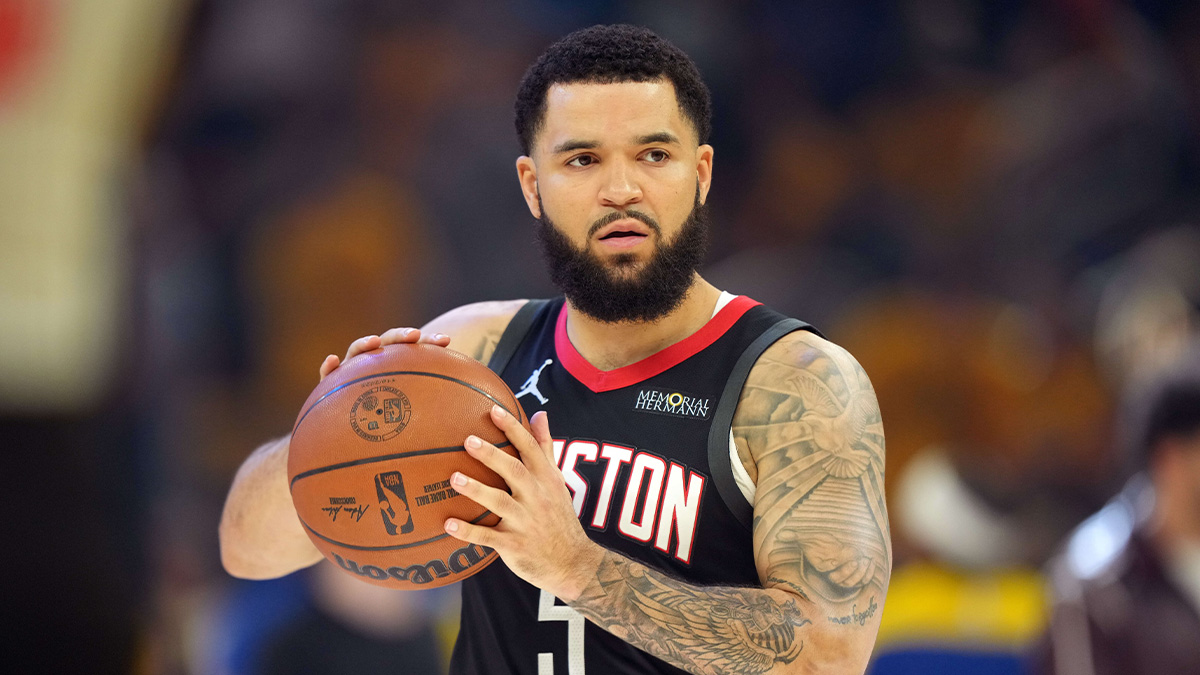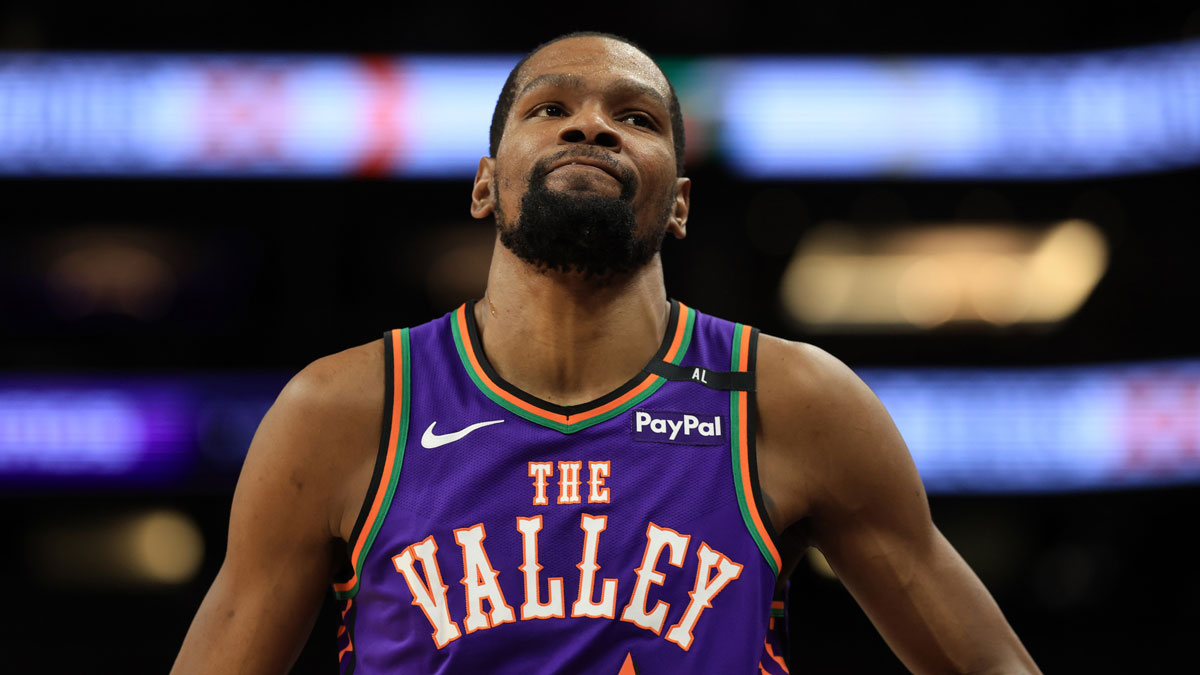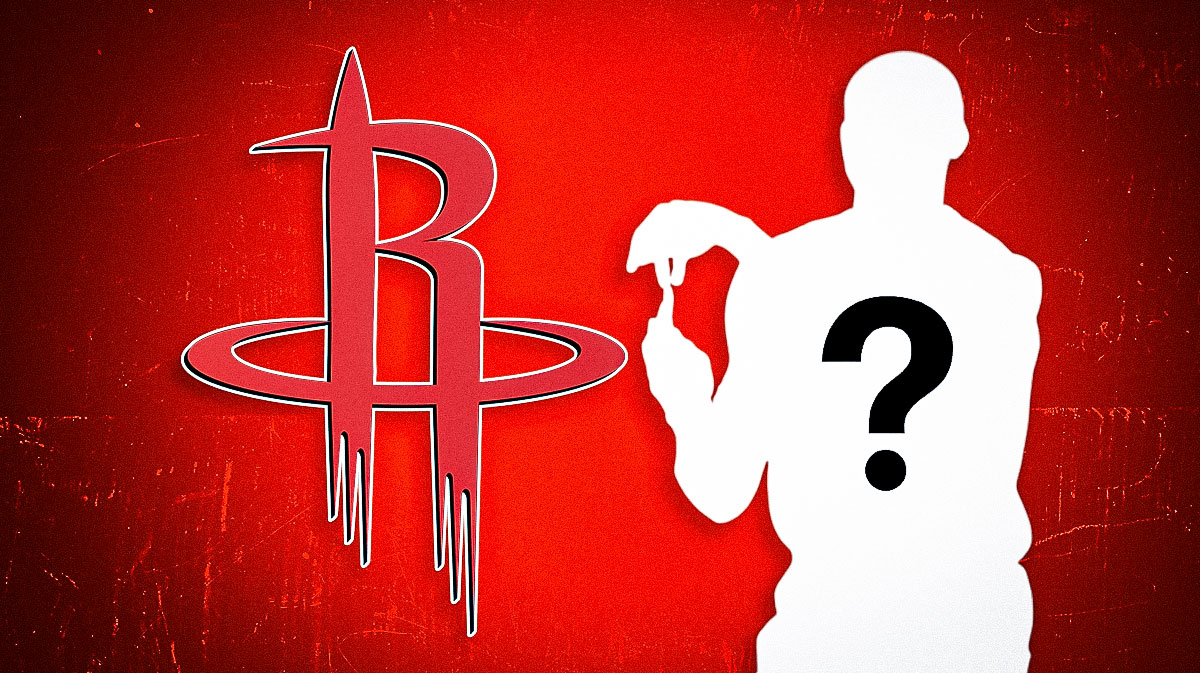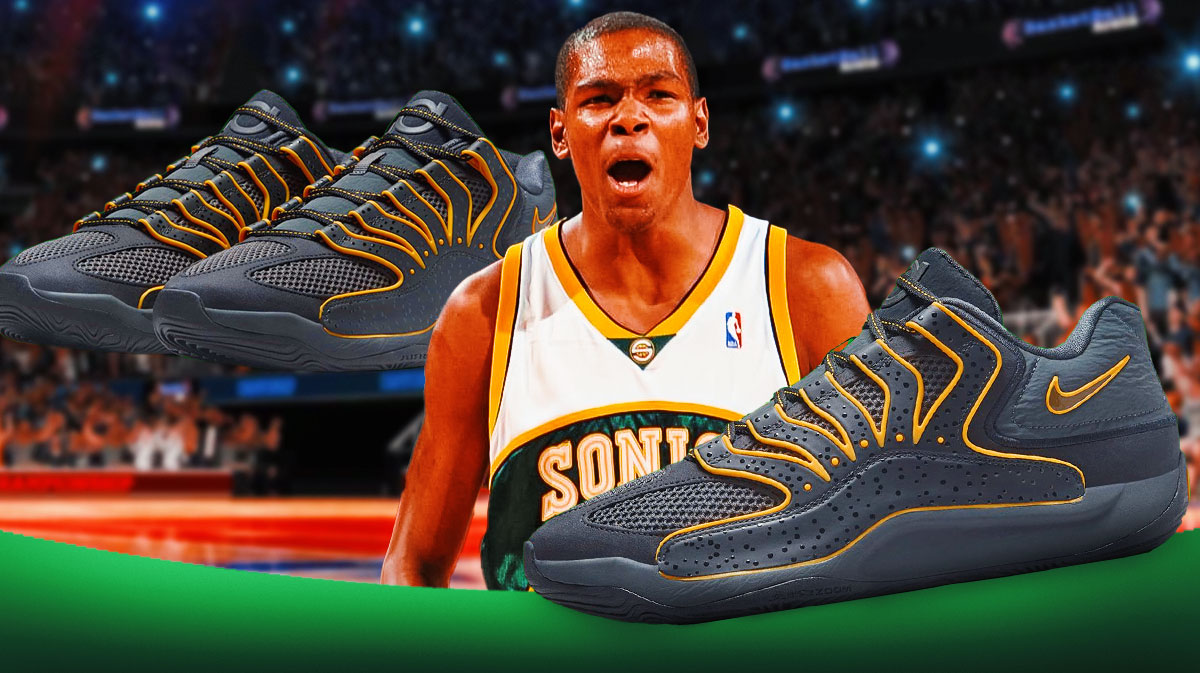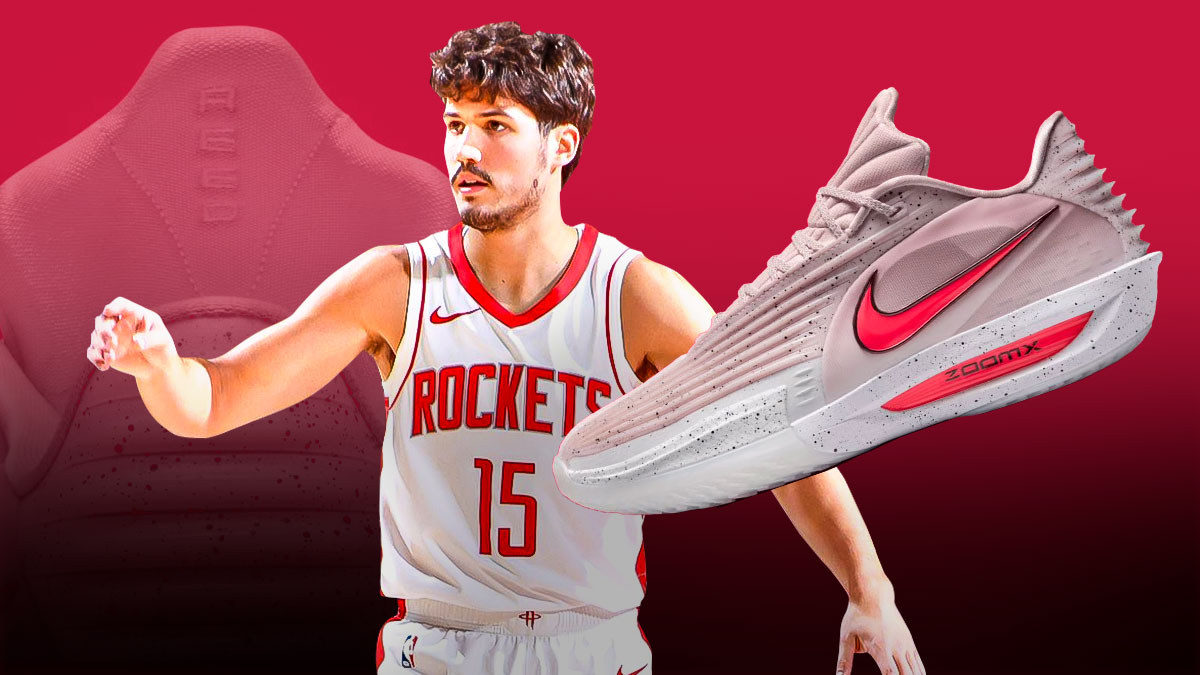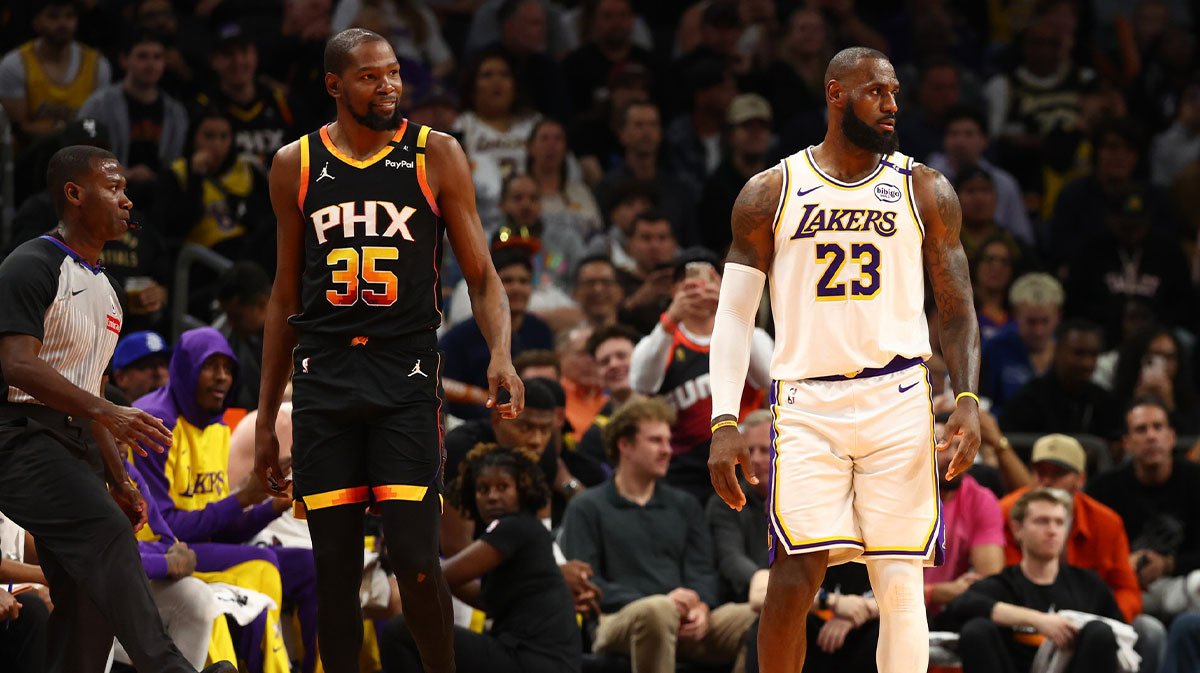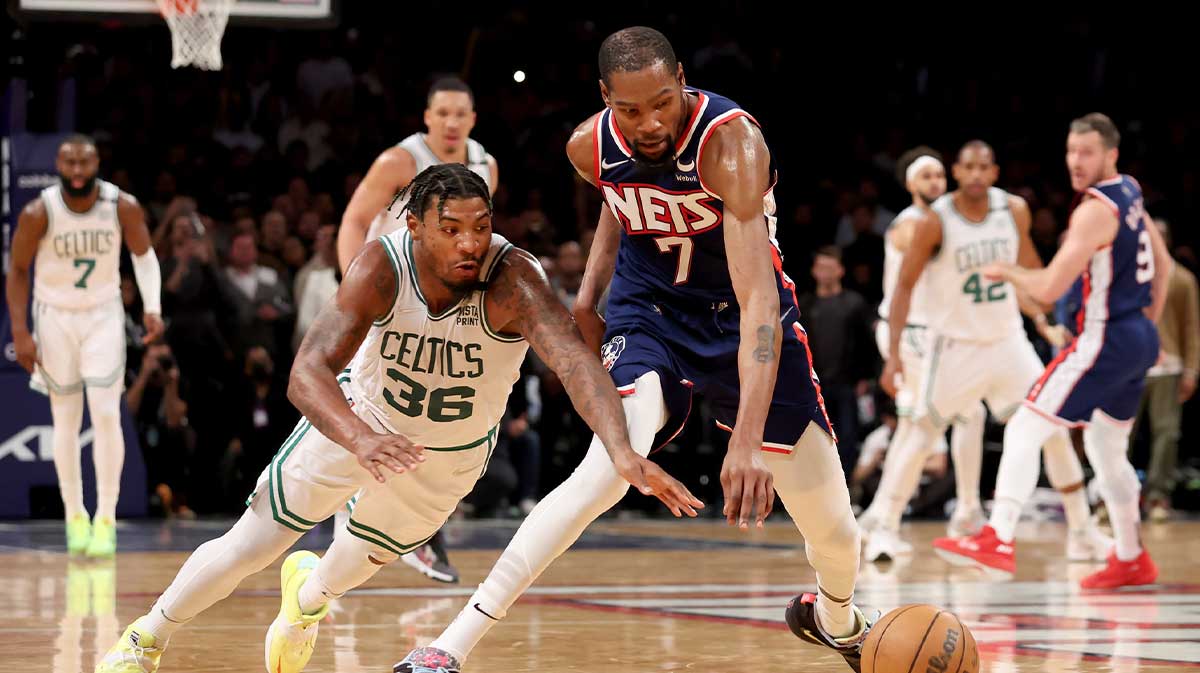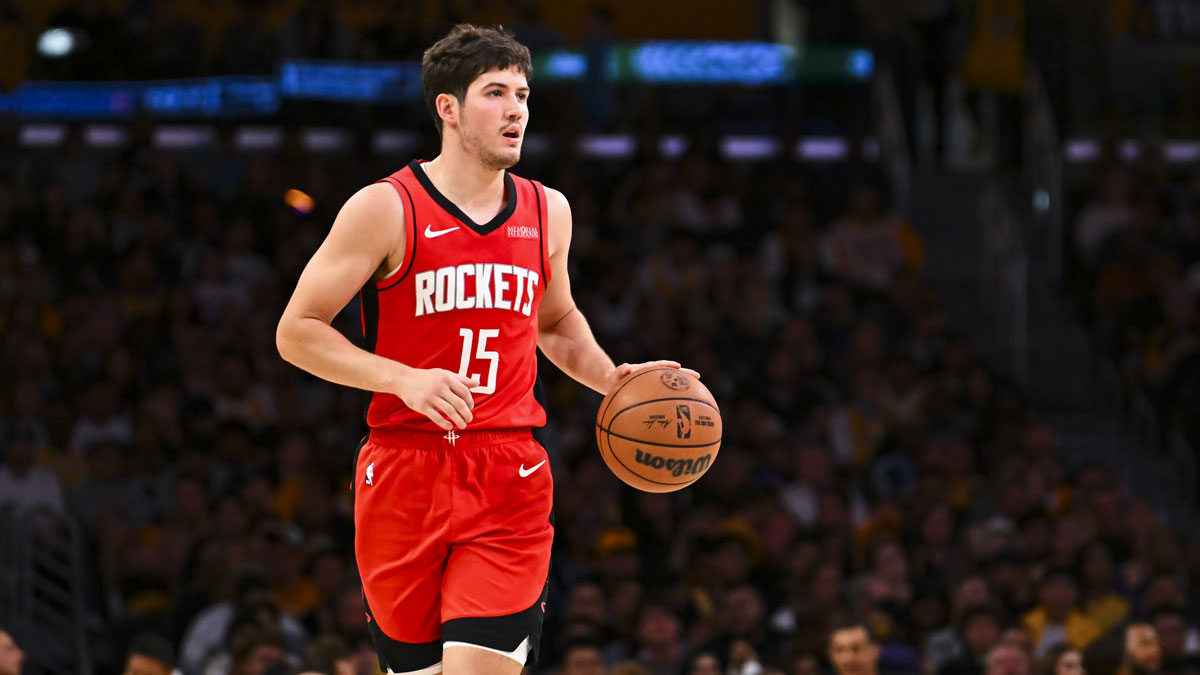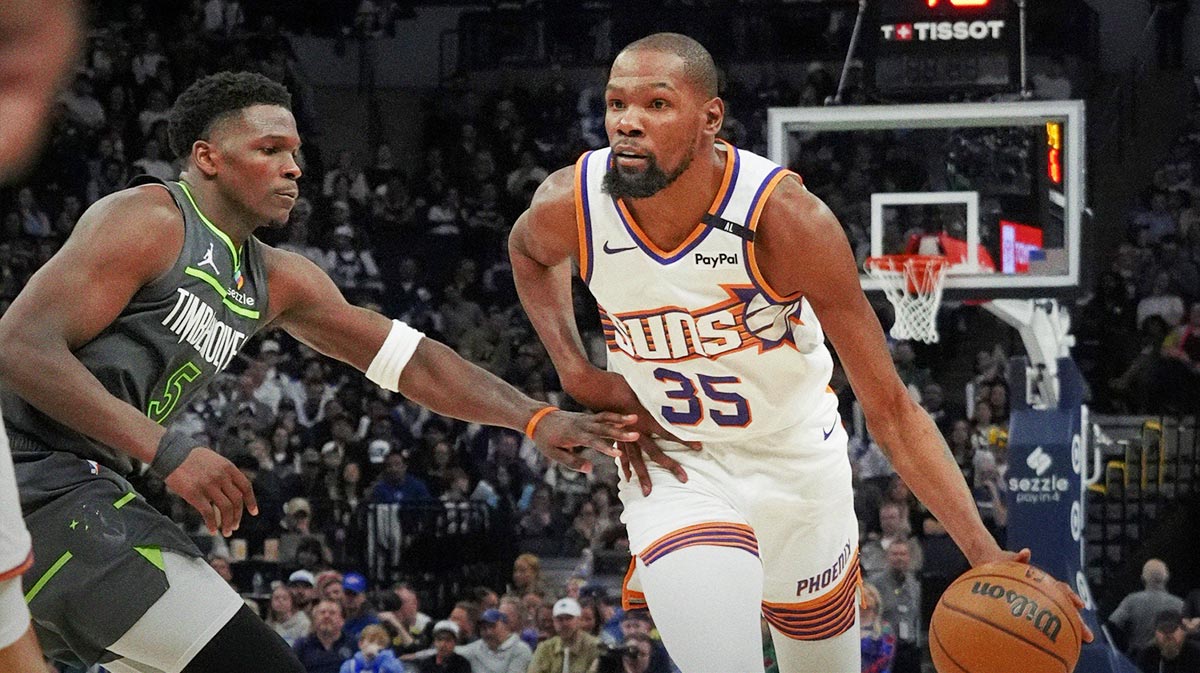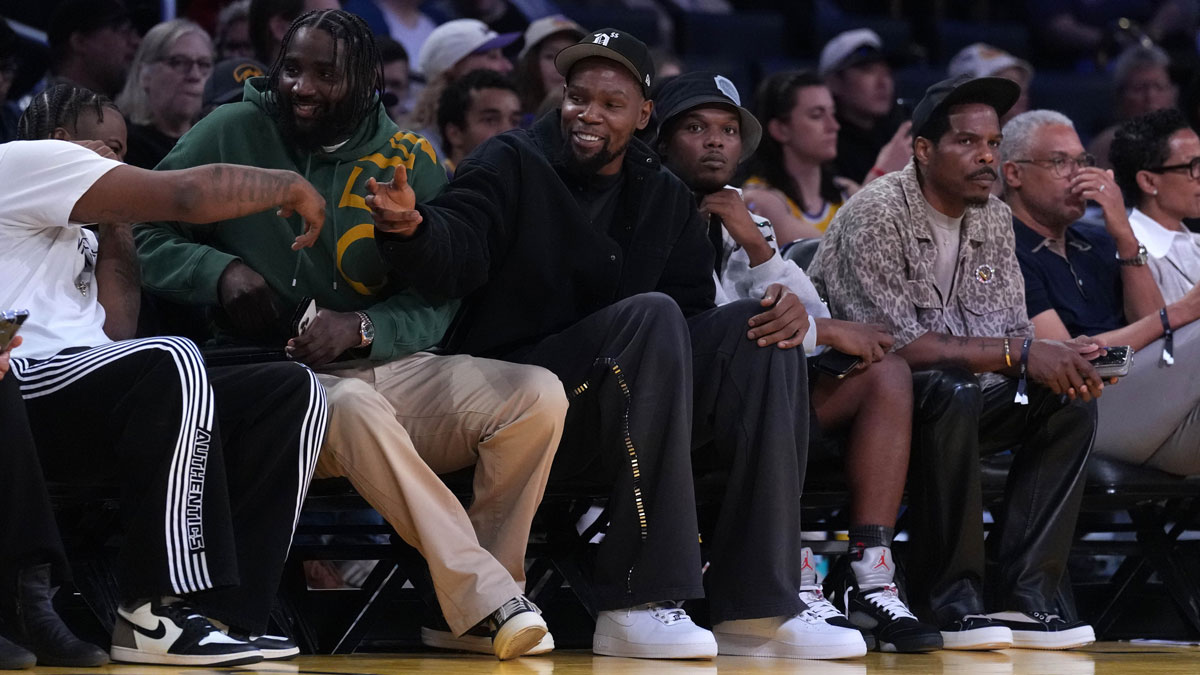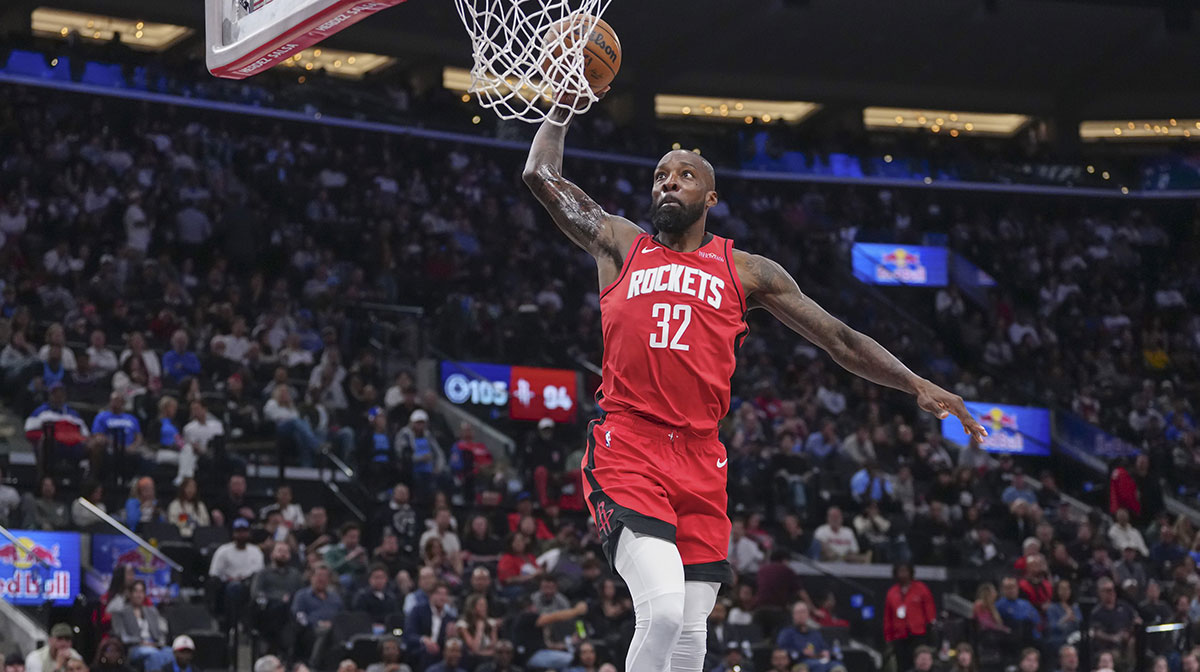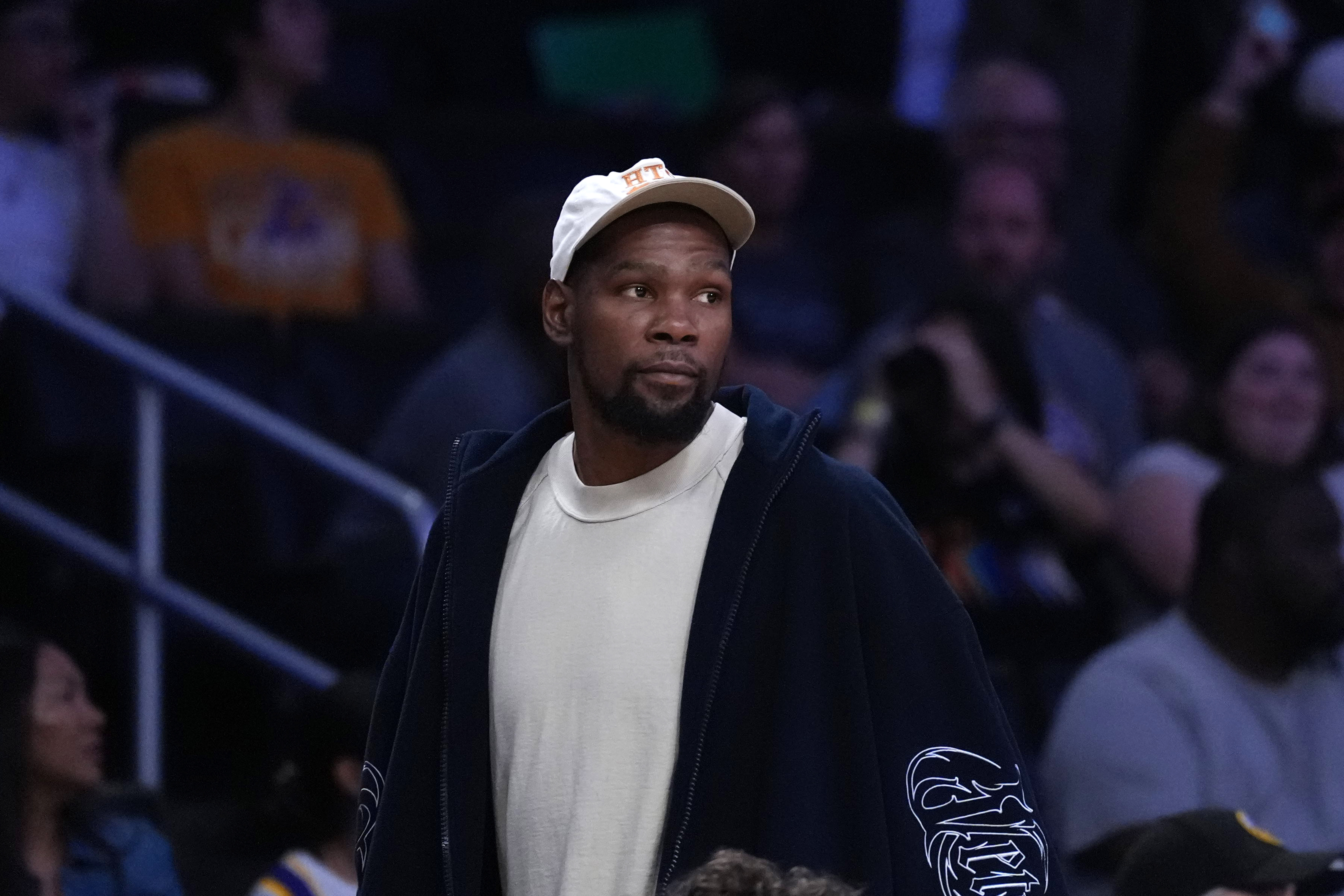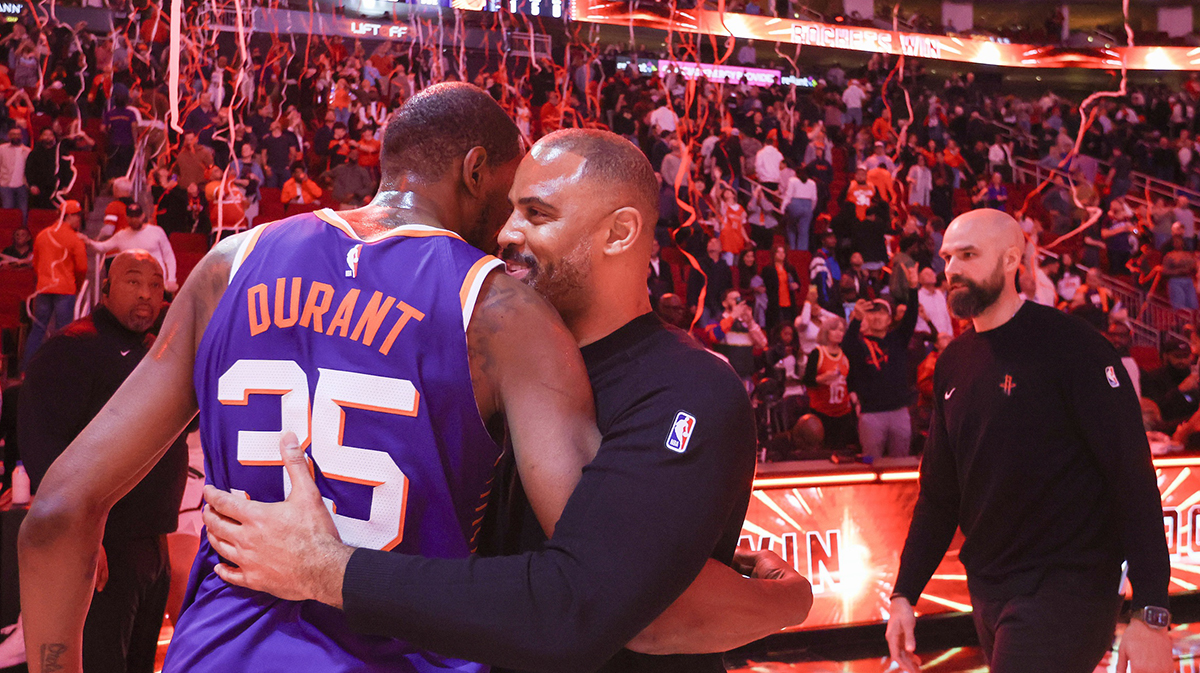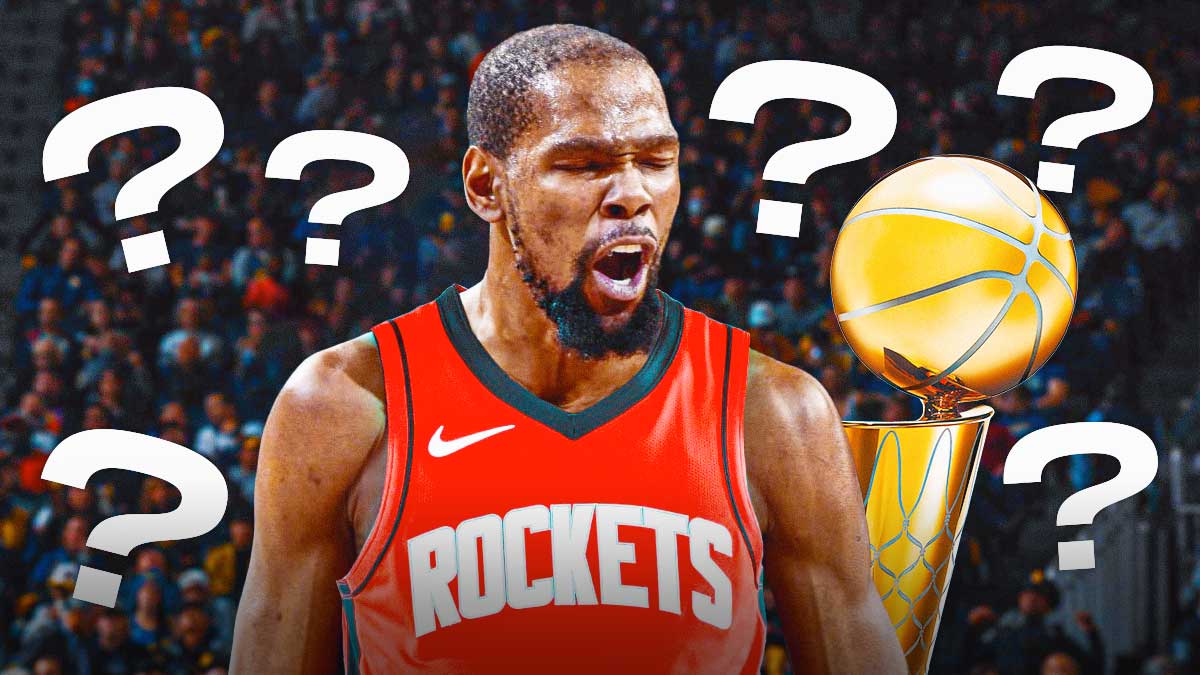Given that each of the first four games of their Western Conference semifinal were decided by six points or less, it seemed that NBA fans were in for another classic series between the Golden State Warriors and Houston Rockets.
Both teams held their home court, but the tide appeared to turn late in the third quarter of Game 5, when Warriors star Kevin Durant left the game with a mild calf strain. After last year's Western Conference Final–where the Rockets blew a 3-2 series lead after Chris Paul was injured in Game 5–karma looked to be swinging in Houston's favor.
After all, Stephen Curry and Klay Thompson were struggling to shoot the ball from the perimeter, and Durant had been having the best postseason of his career.
And yet, the Rockets failed to capitalize. Instead of stealing Game 5 at Oracle Arena, the Rockets imploded offensively as Curry and Thompson gave the Warriors the series lead.
On Friday night, the Rockets' failure was complete. Houston took a five-point lead into the fourth quarter, but Curry exploded for 21 points while the Rockets simply could not keep pace.
After a full summer of claims that they would defeat the Warriors if given another chance, Houston was bounced by their familiar foe for the second consecutive season. So, who is to blame for this latest collapse?
Stephen Curry
There are plenty of reasons for Houston fans to be frustrated with their own team, but it would be wrong not to acknowledge what Curry did in the fourth quarter of both Game 5 and Game 6.
Curry's 21-point explosion on Friday night means that he scored 37 combined points in his last two fourth-quarter performances. Remember that Steph was scoreless in the first half and played under 10 minutes due to foul trouble. He torched the Rockets for 33 in the second half, completely taking over the game and reminding NBA fans that he remains one of the best players in the league.
Curry began Game 5 shooting 2 of 8 and just 1 of 6 from beyond the arc. He finished 7 of 15 in the second half, including two huge threes in the fourth quarter to pace Golden State. In Game 6, he was 6 of 8 from the field in the fourth quarter, making 3 of 5 three-point attempts as well.
There is no question that Curry was ailing a bit from the dislocated finger that he suffered in Game 2. He had been scrutinized the entire series for his poor shooting. But when it mattered the most, the two-time MVP was nothing short of sensational.
Harden and Paul
While Curry made the biggest leap forward in the clutch moments, Harden could not match his output. He scored 12 fourth-quarter points in Game 6, but five of those came as the game was slipping away from Houston. Harden also committed a pair of critical turnovers with under three minutes to play, including a bad offensive foul where he blatantly used his lead arm against Draymond Green and cost Houston a possession and a chance to tie the game.
Combine that with a measly five-point fourth quarter (which also included the field goal drought) in Game 5, and Harden certainly deserves some of the blame. The best players show up when the moment arises, and Harden–as good as he was during the regular season–could not seize the opportunity.
Then there's Paul, who was Houston's best player in Game 6 after scoring 27 points and adding 11 rebounds and six assists. But it was too little, too late from the veteran point guard.
Much like Harden, Paul shrunk when it mattered the most. He shot a porous 3 of 14 from the field in Game 5, including 0 for 6 from the three-point line. This included a second half where Paul shot 1 of 7 and did not register a single field goal in the fourth quarter. While he was far more efficient in Game 6, he took just five shots in the fourth quarter.
But more surprisingly, Paul looked rather slow of foot. Whereas in the past–even last year–he seemed to relish bigs switching out to guard him on the pick-and-roll, he struggled to beat the likes of Jonas Jerebko or Kevon Looney off the dribble. For a team predicated on isolation, they needed their shifty point guard to score at the rim. Paul did not deliver.
How do you continue to rely on isolation plays against one of the best teams ever assembled, with two of the best defenders in the game?
Not only did D'Antoni fail to make offensive adjustments, but his rotations were terrible. Austin Rivers was fantastic off the bench, but why did D'Antoni go with a seven-man rotation? Clint Capela often looked lost defensively because of Golden State's spacing and smaller lineups, so D'Antoni replaced him with… Nene? Or simply rolled with the punches and let P.J. Tucker continue to do all the grinding down low?
Kenneth Faried averaged close to 13 points and nine rebounds for the Rockets during the regular season, and he could have given the Rockets more versatility as an undersized but more athletic center. And yet, he played just five minutes the whole series. That makes no sense.
Simply put, D'Antoni is not the coach to get the Rockets over the hump. He sticks to his guns no matter what, and it can come back to bite him just as it did when he was head coach of the 2012-13 Los Angeles Lakers. Aside from some more roster makeovers, general manager Daryl Morey would do well to begin looking for a new head coach.

